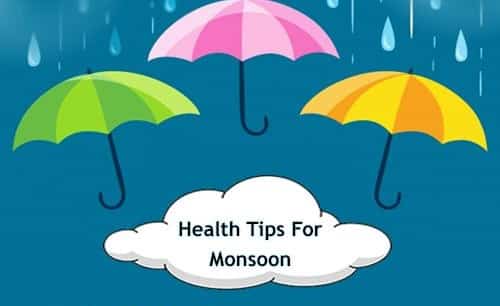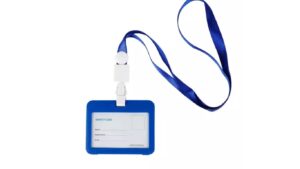Monsoon preparation checklist: Essential tasks for a safe and enjoyable rainy season

Monsoon preparation checklist: Essential tasks for a safe and enjoyable rainy season
The monsoon is here! Besides replenishing our water reservoirs and irrigating our farms, the pleasant weather brings a lot of excitement, fun and outdoor trips. However, wet weather and rainy season may cause discomfort and unexpected situations if not prepared. To avoid any unpleasant experiences during the rainy season, here is a comprehensive monsoon preparation checklist to ensure you haven’t missed anything in your preparation for the monsoon.
Preparing the House for Monsoon
Checking your house to make sure it is rain-ready should be your first priority. It not only protects you during the rainy season but also lets you enjoy the rains while keeping you dry and cozy.
Windows: Check all windows to ensure they seal properly. Clean the channels of sliding windows and open clogged water ducts to let excess water out during heavy, slanting rains.
Fungus Prevention: Ensure no clothing items, paper, cardboard boxes, or similar items are lying around the house in corners. These items quickly absorb moisture and attract fungus. Sort them out neatly and pack them in plastic bags if they won’t be used actively during the rainy season. Maintain good hygiene around the house and use disinfectant floor cleaners daily. Wipe contact surfaces frequently with disinfectants.
Fix Leakages: Repair any leakages before it’s too late. Minor leakages can be very irritating during heavy rains.
Mosquito Nets: Install screens and nets on doors and windows to keep mosquitoes and insects out, as the rainy season breeds mosquitoes and many insects.
Inverter: Check your inverter to ensure it is in good working condition. Top up the batteries with distilled water, check the connections, and ensure it holds enough charge to supply backup power for a few hours.
Staying Healthy During Monsoon
Prolonged absence of sunlight and excessive humidity can take a toll on your health. Protect yourself from the following health conditions during the monsoons.
Stomach Ailments: The digestive system is weakened during the rainy season, so be careful with your food choices and take natural digestive supplements to keep your digestion in prime condition. Drink warm water often to maintain digestive fire and keep respiratory problems at bay.
Infections: Wet weather means infections. Maintain good physical hygiene and avoid eating out frequently. Drink only purified or boiled water. Carry your own water while going out.
Cough and Cold: Frequent wind and temperature changes can make your body lethargic and prone to upper respiratory tract infections. Keep warm by adding a warm garment to your dressing inventory. Avoid getting wet frequently, and if you do, dry your head quickly and change out of wet clothing as soon as possible.
Car Care During Monsoon
Ensure your car is adequately prepared for the season to keep you safe and let you enjoy the rainy days.
Wipers: Replace your car’s wipers if they are not in their best condition to maintain clear vision during heavy downpours.
Leakages: Check if all doors seal properly. Even a few droplets of water seeping in can ruin your day and make your car a hotbed for fungal growth.
Tyres: Pay attention to your car’s tyres and replace them if they are worn out to ensure safety on wet and slippery roads.
Brakes: Get your brakes checked as driving conditions on rainy days are unpredictable.
Headlights: Clean your headlight glass and replace fused bulbs to ensure bright and strong headlights for better visibility.
Traction Control: If your car is equipped with traction control, ensure it is working properly and use it at all times during the monsoon.
Checking The Rain Gear
Ensure the availability of the following rain gear within arm’s reach at all times.
Raincoat: A raincoat is the most effective defense against rain if you are riding a two-wheeler or will be outdoors for long periods.
Umbrella: An umbrella is handy for quick trips to the nearest grocery store.
Rain Shoes: A pair of gumboots or other rain footwear will keep your feet warm and dry, preventing coughs and colds.
Bag Cover: Buy a waterproof backpack cover to protect valuable items from rain damage.
Stocking Up Essentials During Monsoon
Rainy season sometimes disrupts supply lines due to waterlogging, landslides, or flash floods. Maintain stocks of the following items in your house during the entire wet season.
Food: Maintain adequate stock of emergency food items like instant noodles, essential groceries, and milk powder.
Water: Keep a stock of packaged drinking water to ensure you are not stranded without water.
Medicines: Stock up on specific and generic medicines to avoid running out during supply chain disruptions.
Fuel: If you live in a remote area with a cold climate, stock up on fuel for heating, running your generator, and cooking.
Batteries: Keep a supply of batteries for use during power failures to keep your house lit and maintain communication.
Traveling Cautiously
Monsoon makes people travel more for leisure and sightseeing. Travel during rains is fun but requires caution.
Weather: Keep an eye on weather forecasts for your destination and the journey to avoid being stranded.
Sightseeing: Be careful in crowded places like lakesides, waterfalls, and mountain cliffs as the terrain becomes slippery and dangerous.
Selfies: Avoid taking selfies in dangerous spots to prevent accidents.
Caring For Pets During Monsoon
Ensure your pets have a great time during the wet weather with these precautions.
Cleanliness: Bathe pets regularly using antiseptic shampoo to take care of ticks and fleas.
Anxiety: Comfort pets during thunderstorms and lightning. Avoid leaving them alone for long periods.
Food: Watch their diet and avoid feeding them too much meat or oily food. Provide fiber-rich and packaged food.
Walking: Take pets out for walks at the first opening in the weather, avoiding waterlogged areas and grass to prevent mosquito bites and tick infestations.
The monsoon season is not an apocalyptic event, and while the points above may sound like a doomsday preparation, this checklist can come in handy as a reminder. It’s better to be safe than sorry.










